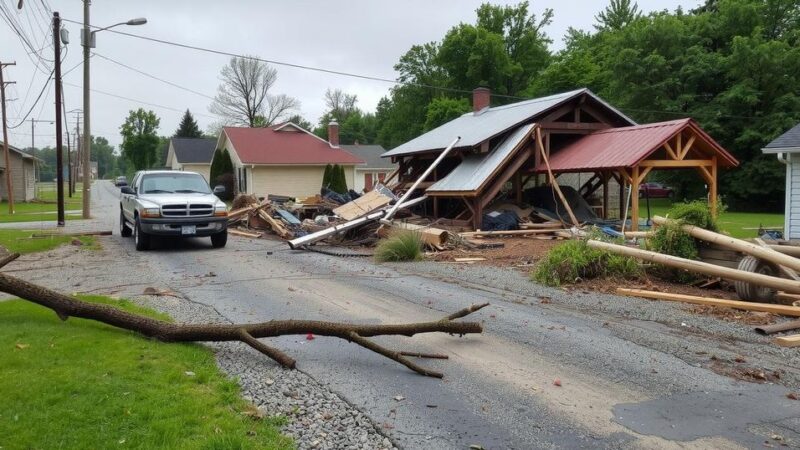Cyclone Chido has caused severe damage in Mayotte, claiming several lives and destroying critical infrastructure, as it approaches Africa’s east coast. The cyclone’s winds reached over 220 kph, leading to widespread destruction and concerns for the safety of vulnerable populations. The situation is being closely monitored by French authorities, with rescue operations underway and preparations being made in neighboring countries for the impending impacts of the cyclone.
Cyclone Chido has inflicted significant devastation on the French territory of Mayotte in the Indian Ocean, causing several fatalities, as it now advances towards the eastern coast of Africa. French Interior Minister Bruno Retailleau indicated that although preliminary assessments report a “very provisional” count of casualties, the number may rise due to ongoing rescue efforts on the ground. He expressed concerns about the high anticipated toll, stating, “The island seems devastated.”
Characterized by winds exceeding 220 kilometers per hour (136 miles per hour), Cyclone Chido dismantled infrastructure, ripping metal roofs from homes in Mayotte, a region with a population exceeding 300,000 inhabitants distributed over two principal islands located approximately 800 kilometers (497 miles) from Mozambique. Prime Minister François Bayrou noted that public facilities, including the prefecture, hospital, and airport, suffered severe or complete destruction. Many residents in vulnerable conditions face grave risks due to the cyclone’s aftermath.
President Emmanuel Macron affirmed his engagement in monitoring the crisis. François-Xavier Bieuville, the prefect of Mayotte, described the cyclone as “the most violent and destructive” experienced since 1934 and indicated that many have lost everything. Local authorities have deployed 1,600 security personnel to assist affected populations and prevent looting, alongside the arrival of 110 rescuers and firefighters from France and Reunión, with plans for an additional 140 personnel.
The cyclone’s impact has jeopardized basic services, including air travel, with significant damage reported at Mayotte airport, primarily to the control tower. Furthermore, thousands of homes remain without power, and extensive damage to local structures has occurred. Authorities have advised the population to remain sheltered, while public and school activities have been suspended in preparation for the cyclone’s impact.
Adjacent Comoros is also under threat from Cyclone Chido, with local authorities issuing alerts and requiring all fishing vessels to remain in port. The cyclone is expected to continue towards Mozambique, potentially affecting approximately 2.5 million people in the northern regions. Nearby countries, including Malawi and Zimbabwe, are also responding to the anticipated consequences, preparing for possible evacuations due to flooding risks.
This recent cyclone contributes to a troubling trend, as the region has experienced an uptick in severe tropical storms due to climatic changes, with previous cyclones like Idai in 2019 and Freddy last year claiming over a thousand lives and causing extensive humanitarian crises. The accompanying risks of flooding, disease outbreaks, and humanitarian emergencies underscore the pressing need for effective disaster management in these vulnerable regions.
The Indian Ocean is periodically affected by tropical cyclones, particularly during the cyclone season from December to March. Southern Africa has experienced an increasing frequency and intensity of cyclones as a result of climate change, with socio-economic impacts that disproportionately affect poorer nations. Past cyclones like Idai and Freddy resulted in significant casualties and humanitarian crises, exacerbating the already vulnerable living conditions in the affected areas.
Cyclone Chido’s severe impact on Mayotte illustrates the devastating effects of natural disasters in the context of climate change, highlighting the critical vulnerabilities faced by communities in the Indian Ocean region. The anticipated repercussions in Mozambique and surrounding countries call for urgent preparedness and effective disaster response measures to mitigate loss of life and infrastructure damage while fostering resilience in the face of increasing cyclonic activity.
Original Source: www.cnn.com







